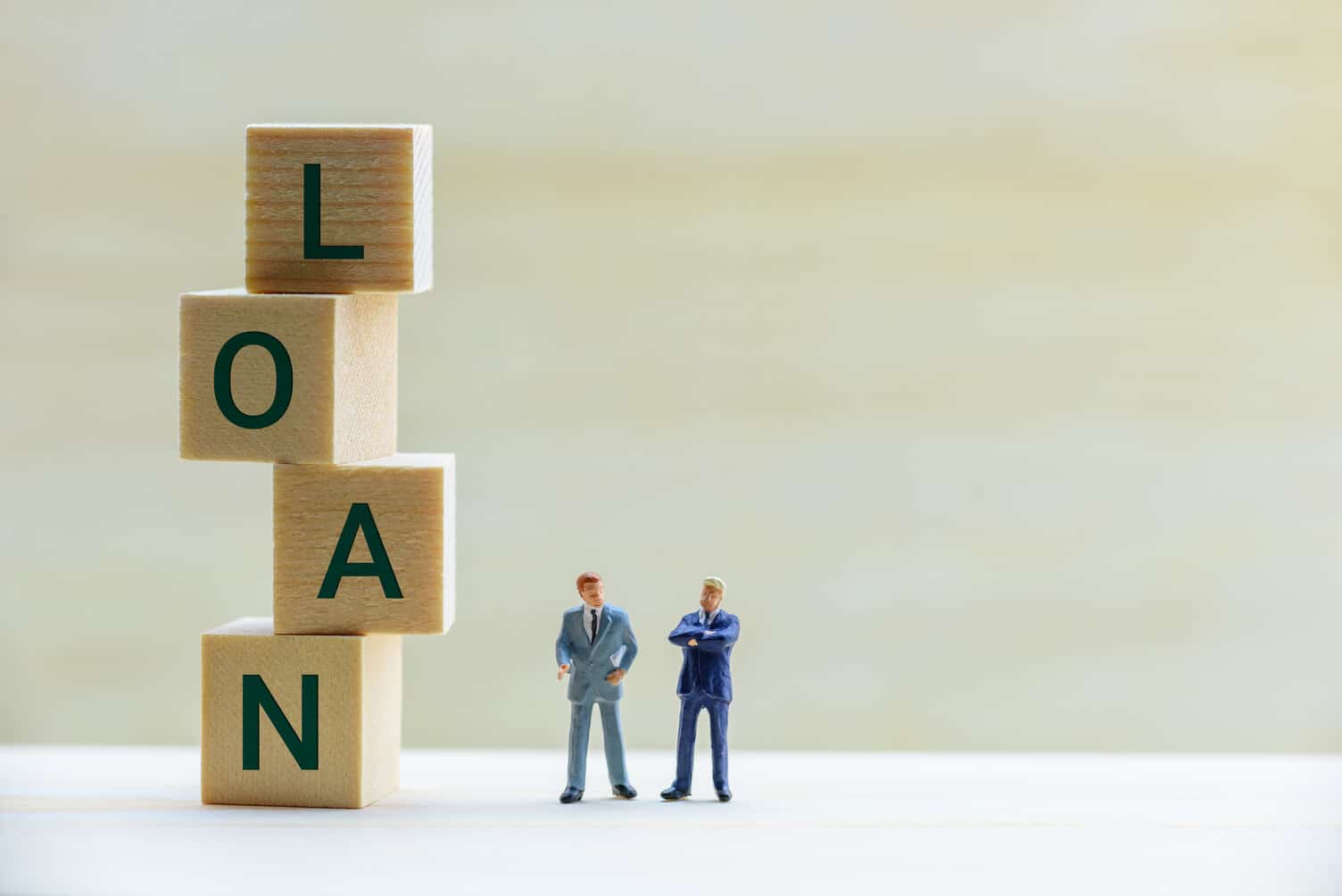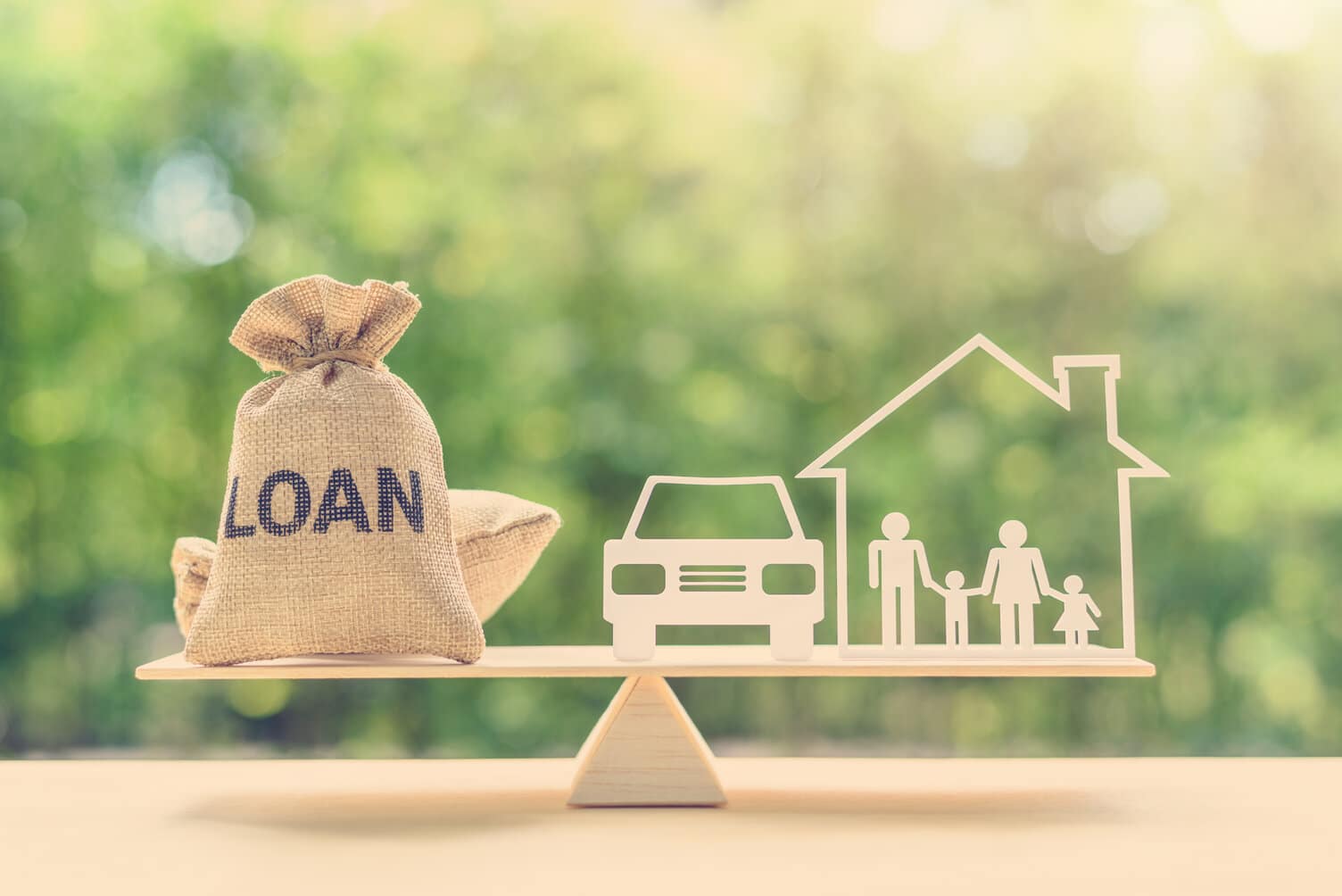Jasmine Birtles
Your money-making expert. Financial journalist, TV and radio personality.

Need to borrow some money? Whether it’s for a big purchase (for example a property) or a smaller one (for example an extension on the back of your house), you’ll want to investigate your options closely. In doing so, you might run into a question: do I need a secure or an unsecured loan? The differences between a secure vs unsecured loans impacts your decision a lot – so it’s important to know what each one is.
The question of finances is often a complicated one, and when the subject of borrowing comes up we can find ourselves asking some big questions. Can we really afford to put our family home up as collateral? What will happen if we default on our payments? Do we need to go about making changes to our credit score – and if so, how do we do that?
Keep reading to discover the differences between secured and unsecured loans. We’ll also explain when you might need to choose one over the other, and what you should consider when you’re doing so.

Secure loans are those taken out against an asset, for example property. They are very common, especially in the purchase of homes and vehicles. Your mortgage, for example, is a secured loan – and a very common one.
In both of these cases, that of your house and your car, the asset that you are purchasing acts as the collateral. This means that, if you fail to make the agreed repayments, your home or car could be seized by your lender (e.g. the bank).
There are of course other examples of secured loans, but these are the most common. Their ubiquity should give you confidence. Millions of people have secure loans, and it’s unlikely that you’ll default on your payments unless something goes seriously wrong.
As with anything financial it still pays to be aware of your other options, though.
Unlike secure loans, unsecured loans are those that are not reliant on the collateral that a person has. Rather than being secured against, for example, a house, an unsecured loan is given based on the person’s credit score and their perceived trustworthiness. For this reason, only those with high credit scores are likely to be seen as secure enough prospects for an unsecured loan.
Examples of unsecured loans include:
Because unsecured loans are riskier, they might come with a higher rate of interest than secured loans. Be aware of the terms of this if you’re taking one out!
One of the most obvious examples, as mentioned above, is a student loan. Most of those attending university don’t have an asset to put against the money they borrow whilst studying. Nor do they need one, as the student loans system in Britain is unique in terms of financial borrowing and expected repayments.
Aside from education, other reasons for taking out an unsecured loan include:
…or any other reason that you might require a personal loan for short term expenses.

In many cases, the type of loan you take out will be dictated by whatever it is that you need it for. If you are investing in a masters degree, for example, the loan you take out will more than likely be unsecured.
If you’ve got a choice, though, you should make sure you weigh up the pros and cons of both. Remember than an unsecured loan is likely to be more expensive, as there is no asset involved, meaning higher risk for the lender. A secured loan could risk your home, though, if you fail to make the repayments. Your own circumstances will inform whether you go for a secured or unsecured loan.
The amount of money that you need will also inform your decision. Whilst unsecured loans will typically offer relatively small amounts (up to £25,000) secured loans will go higher than this. If you want to make small changes to your home, for example, you might be naturally led to an unsecured loan. On the other hand, bigger investments (such as vehicles) might require more security for lenders, leading you to take out a secure loan instead.
As already mentioned, you’ll need a good credit score to take out an unsecured loan. This means that this is likely to factor into your decision, too.
Of course, you might decide that a loan isn’t the way forward after all. If you’ve got a low credit score you might not qualify for an unsecured loan. At the same time, you might not need to borrow as much money as a secure loan would offer. If you only need to borrow a few thousand pounds, consider your other options:
Got a strong opinion on secured or unsecured loans? Let us know over on the forums.
Need more advice about loans and money management? Read these next!
*This is not financial or investment advice. Remember to do your own research and speak to a professional advisor before parting with any money.
